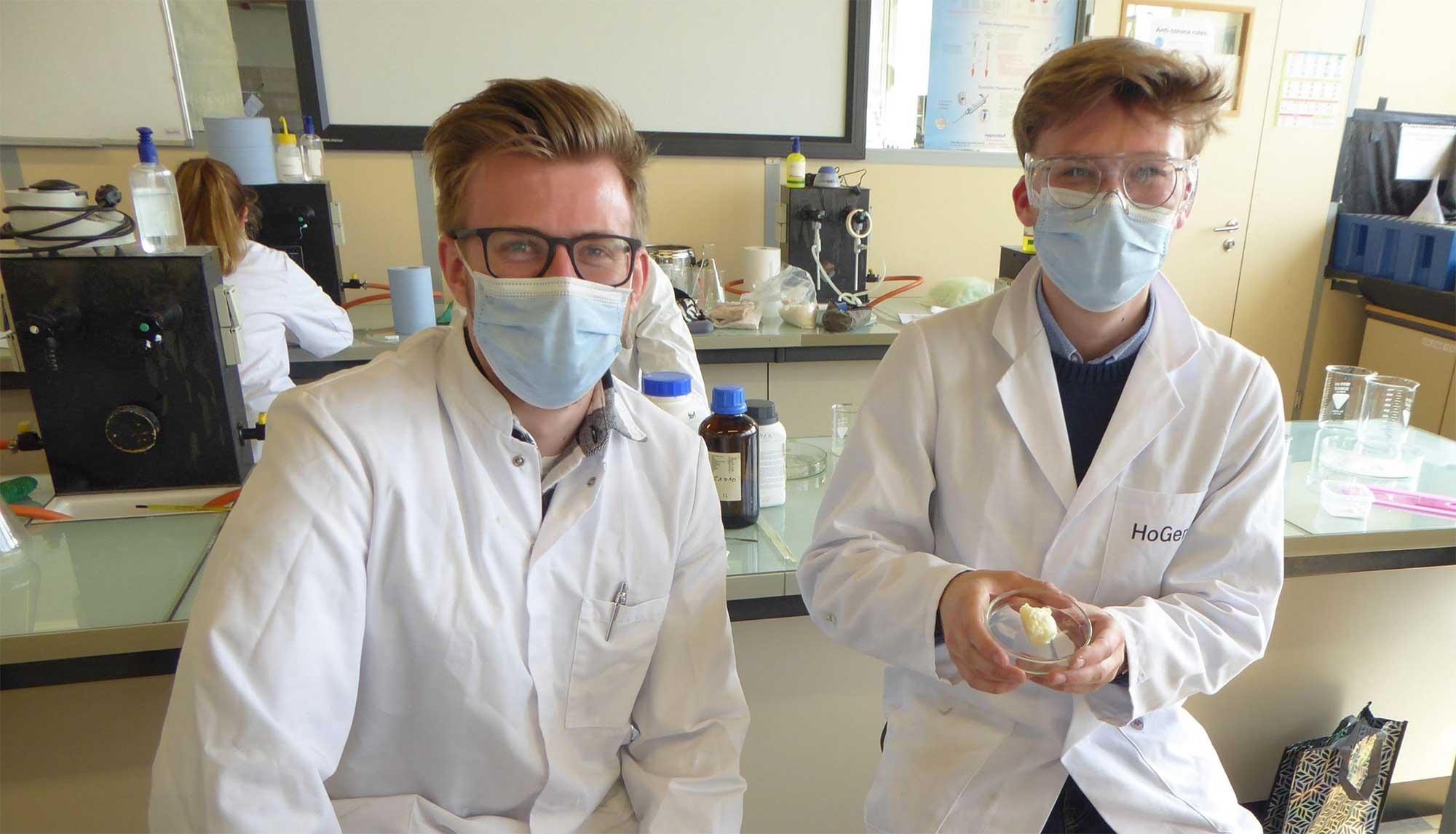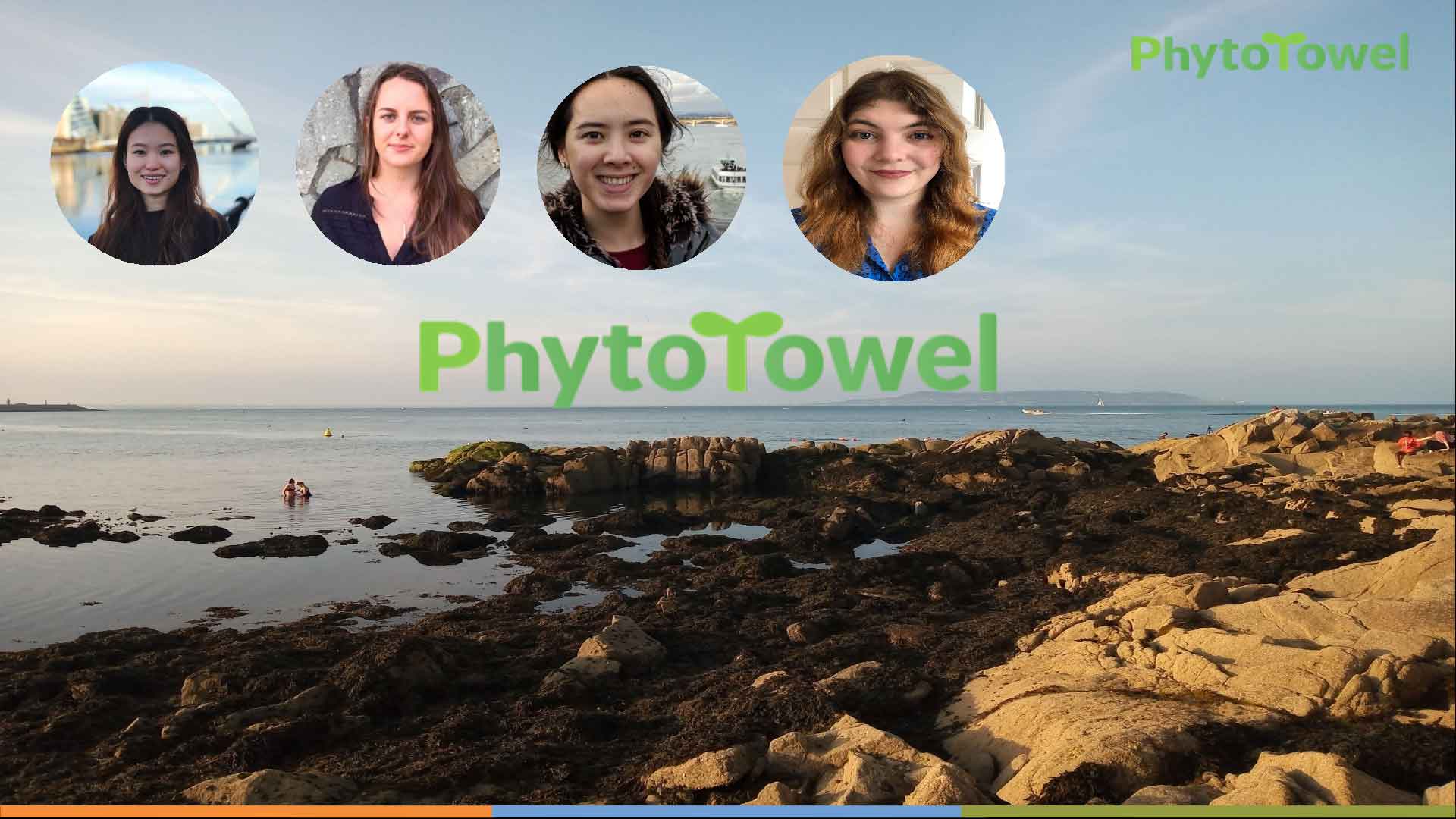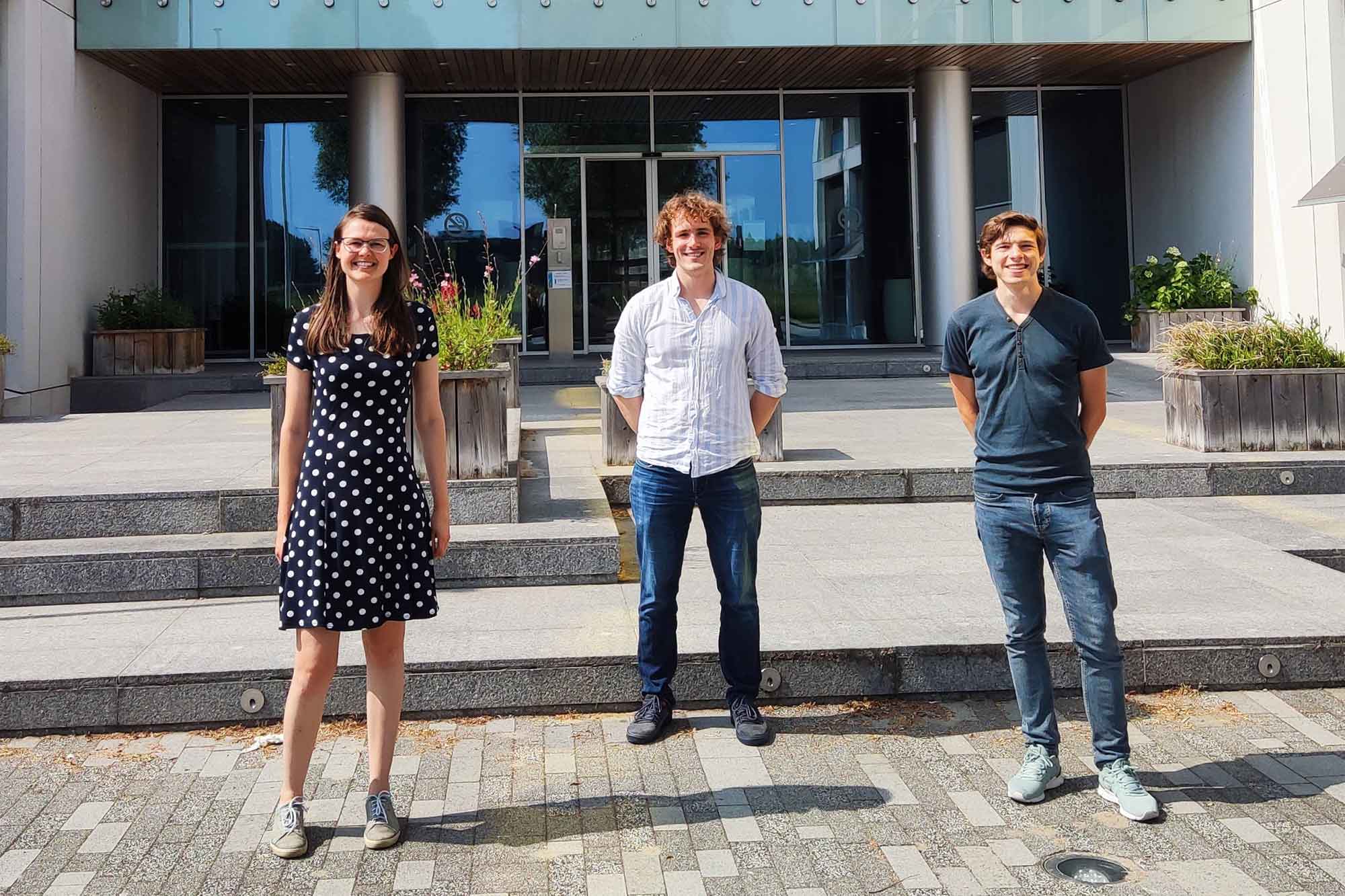BISC-E, in full the Bio-based Innovation Student Challenge Europe, originated in the Netherlands in 2018 and, thanks to the involvement of BIC, has been an international competition since 2019, open to students from all over Europe. They are challenged to present an innovative bio-based product or service to contribute to solving societal challenges. This takes place in two stages: first in national competitions and then in a European final.
Leather alternative from wastewater
This year’s European top prize went to the Dutch Team WaterSkins of TU Delft. Gijs Arnold of this team: “TU Delft has developed a raw material from wastewater: the biopolymer kaumera. We had already seen its potential as an alternative for leather. However, the plans were put on hold until a study coordinator pointed the students to BISC-E. “That’s when we went into the lab and started talking to professors to develop the plans further.”
The result is a prototype material that shows promising properties and is above all, very sustainable. It offers developing countries, for example, the opportunity to link a revenue model to the construction of a water treatment plant, making it easier to secure financing. Moreover, no heavy chemicals are used in the production process, as is the case in traditional leather tanning.
Gijs is very positive about the feedback he received from BIC members during the preliminary rounds of the international competition. “I noticed that they had a lot of information about a lot of things. Whatever the product or process, they were able to ask sharp questions. The level of knowledge was top notch. That helped us sharpen our pitch for the next round.”
Team WaterSkins will now continue to develop the idea into a commercial product. “We will continue, especially now that winning BISC-E confirms the potential of our idea. We are currently looking at issues around the IP and orienting ourselves on the next steps: how can we scale-up, improve it, market it and what partners do we need to do this?”
Duckweed towel
In second place was the Irish Team PhytoTowel with an idea to clean polluted surface water by the circular cultivation of duckweed, one of the fastest growing plants in the world. Protein-rich duckweed acts like a ‘towel’: it absorbs pollutants and returns clean surface water. By harvesting the duckweed, it can also be used as animal feed or fertiliser.
For student Laura Healey, now working at Teagasc, the award came as a surprise: “It was the first time that a BISC-E competition was organised in Ireland. I had never heard of it until the BiOrbic organisation (https://biorbic.com/) got in touch and was looking for students to enter a national competition.”
Because of COVID-19, most students at the time were working in isolation. BiOrbic, however, knew students at various universities in the same situation and a team was formed online. The meetings then all took place via Zoom. “We only met as a team for the first time on the day of the finals. I am proud that it worked out so well in spite of this and that we came in second place.”
During the first rounds of introductions, the students discovered swimming as a common interest. “Irish beaches are repeatedly closed to swimmers because the water is too dirty. This is disastrous for the image of our island nation. So we came up with a solution: an organic towel that cleans the water and serves as a raw material. However, when the competition started, none of us had the idea that we could turn this into a business.”
Things turned out differently, however, and the students want to start building PhytoTowel into a real business. “We would like to work out the technical details further and maybe get in touch with an incubator to help with this. We also would like to approach possible customers, such as companies that produce milk waste and wastewater, to make sure we have a good idea of their needs.”
All in all, Laura found participating in BISC-E a positive experience. “You hear so much negativity about how irreversible damage is done to the environment. It’s good to see that so many people are thinking about solutions. It is not all doom and gloom; we see a lot of positivity in this sector. I hope that we can also bring this good message to the readers.”
Peanuts made from bread
Whereas in the past BISC-E was mainly a competition aimed at universities, this year universities of applied sciences were also allowed to participate. Teachers of the Hogeschool Gent (HoGent) in Belgium promptly enrolled several chemistry students who had developed bio-based concepts in the second year of their study. “We were simply told to enter this competition. Retroactively, we found out that it was an entrepreneurial competition,” says Niels Soen, student of Biochemistry. “We had to turn it into an economically viable idea and that was a challenge. Fortunately, it worked out well for us.”
The five-member Team Loaf Foam, in which none of the students had a business education, won third prize in the BISC-E final with a plan to make sustainable packaging materials from stale bread: so-called packing peanuts. “Biologically degradable packaging materials already exist, but most manufacturers are at the other end of the spectrum. Moreover, packing peanuts are conventionally made from corn starch, which is a primary source. By using old bread, our carbon footprint is significantly smaller. We do not need farmland, manure or pesticides. We make a full product from a waste stream in an energy-efficient and easy way, without competing with food. And there is certainly demand for that.”
It is circularity at its best. As far as the supply of raw materials is concerned, Loaf Foam need not worry either. In Flanders alone, 44 million kilos of bread are thrown away annually, which means that almost 20 million kilos of starch are wasted.
Looking back, fellow team member Marte Vandenbroucke sees the competition as an exciting rollercoaster ride. “We have learned a lot and I think this applies to all our teammates. We are science students, of course. A lot of new things have happened in economics and business. The Belgian final was a kind of hazing. We have grown tremendously since then, thanks to the input of the jury and the coaching and guidance from BIC. This ensured that we were stronger in the European finals.”
Loaf Foam is now working hard on a market launch. Marte: “We need specific equipment for this. Buying the technical devices is not an option, so we are asking Ghent University to assist with testing.” Niels: “In the coming weeks we are going to manufacture our first prototypes. Several people have already asked us if we can produce samples. If we can deliver those, I think we’ll be up and running pretty quickly.”
WaterSkins coordinates BISC-E next year
The winning team of the European BISC-E final round will assist BIC in coordinating the national and European finals the year thereafter. This means that WaterSkins in the Netherlands will be the European coordinator for BISC-E 2022. BIC is looking into possibilities to have the European final round take place in the winning team’s home country if it can be done in a physical event.
Gijs Arnold: “We hope to get more people excited about BISC-E, because participating is a valuable and really fun experience. Moreover, you train yourself and your team to turn scientific ideas into a business case that may be interesting for industry. I would advise all my fellow students to participate!”
Visit the BISC-E website for more information.
This article was produced in cooperation with the Bio-based Industries Consortium (BIC).
Lead image: Shuttercon/Shutterstock






